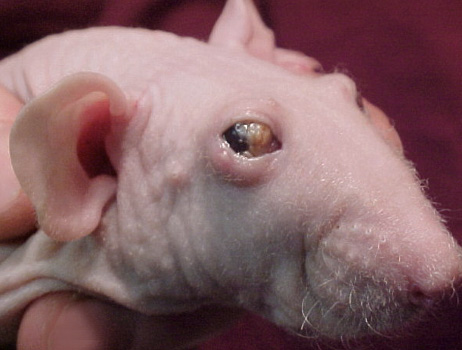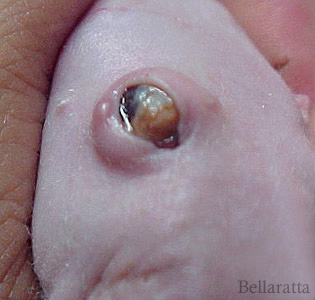Figure 3: Squamous cell carcinoma of the eye
Case history and photos
History
Female hairless rat, 3 years old obtained from a mass breeder with persistent eye irritation and respiratory issues.
Clinical Signs
The rat’s eye typically has small pimples around the lids and was often irritated.
There was persistent discharge from both eyes. It was noticed that the discharge seemed to be stuck on the eyeball. It was realized that the milky spot, thought to be discharge, was attached to the eye.
Tests Performed Visual examination by vet shortly after spot on eye first noticed. Following euthanasia 5 weeks later for severe respiratory disease, the eye was put in formalin and sent to the lab for histology.
Diagnosis
Squamous cell cancer of the eye. Blindness.
Treatment
After being seen by the vet it was decided that surgery was not an option for this elderly rat due to her age and respiratory condition.
She was given antibiotics and ointments to keep the eye moist.
Outcome
Approximately 5 weeks after later she was euthanized humanely due to severe respiratory disease.
Photos
 Photo 1: This photo taken about a month after growth was first noticed. |
 Photo 2: Shows close-up view of growth on eye. |


